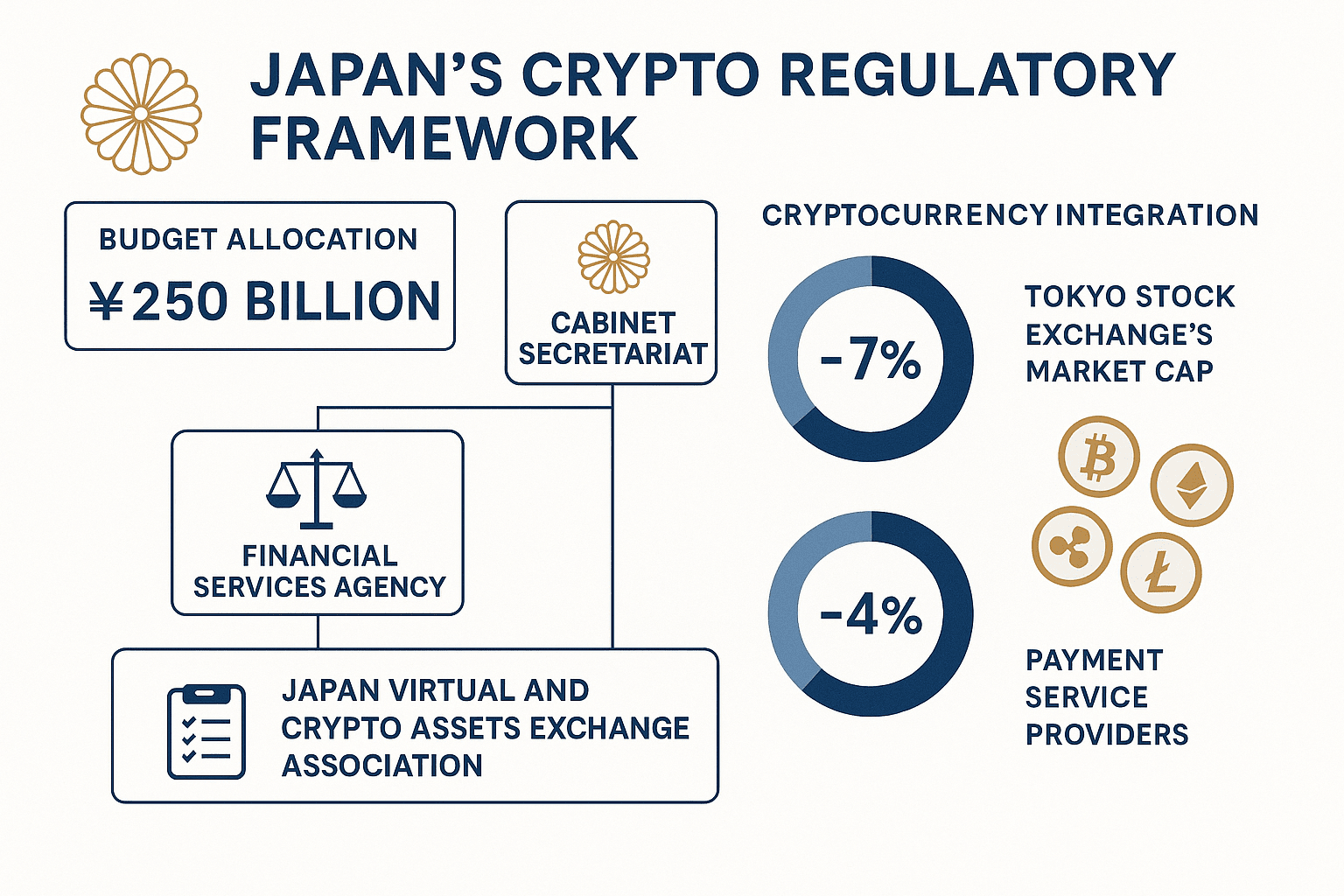
In the increasingly fierce global competition for cryptocurrency regulation, Japan once again demonstrates a forward-looking policy vision. On August 29, the Financial Services Agency of Japan announced the budget, organization, and personnel requirements for fiscal year 2026, the most notable being a major reorganization to establish a new "Cryptocurrency and Innovation Department," with the budget increased to 25 billion yen (approximately 170 million USD), an increase of 1.19 billion yen compared to the previous fiscal year.
According to public documents, the Financial Services Agency has defined the topic of restructuring as "the need to enhance the capacity to respond to changes in financial services using new digital technologies such as financial technology, cryptocurrency trading, and artificial intelligence." This statement clearly indicates that the Japanese government has viewed cryptocurrency and blockchain technology as important driving forces for the future development of the financial services industry.
The specific restructuring plan shows that the Financial Services Agency will rename and reorganize the existing "Comprehensive Policy Bureau" into the "Asset Management and Insurance Regulatory Bureau," and within this new bureau, establish the "Cryptocurrency and Innovation Division," upgrading the current "Cryptocurrency and Innovation Advisory Office" to a formal division-level department. This organizational restructuring not only elevates the administrative level of cryptocurrency regulation but also provides a strong organizational guarantee for related policy formulation and implementation.
Of particular interest is the discussion included in the tax reform demands announced simultaneously by the Financial Services Agency of Japan regarding the implementation of a separate taxation system for cryptocurrency transactions. Currently, Japan levies income tax on cryptocurrency trading profits at a progressive tax rate, with a maximum rate of 55%. The separate taxation system would allow cryptocurrency trading to enjoy the same tax treatment as stock trading, with a fixed tax rate of around 20%.
From an international comparative perspective, Japan's initiatives have significant demonstrative significance. Among major global economies, the United States, the European Union, and others are strengthening regulation of cryptocurrencies, often focusing on risk prevention and investor protection. In contrast, Japan's approach is more balanced, emphasizing both regulation and development, providing important references for other countries.
At the level of industrial development, Japan's policy adjustments will have a significant impact on the global cryptocurrency industry landscape. With improvements in the regulatory environment and optimization of tax policies, more cryptocurrency companies may choose to establish their headquarters or regional centers in Japan, which will not only promote the development of Japan's domestic cryptocurrency industry but also enhance its voice in the global cryptocurrency ecosystem.
The functions of the newly established department also include the regulation and promotion of emerging technologies such as artificial intelligence and blockchain. This indicates that the Japanese government recognizes that cryptocurrency is only one aspect of blockchain technology application, and broader digital transformation is the future direction of development.
In terms of risk management, the Financial Services Agency of Japan emphasizes that it will build a system of "investor protection equivalent to that of the stock market." This means that while encouraging development, regulatory authorities will also strengthen their efforts to combat illegal activities such as market manipulation and insider trading.

